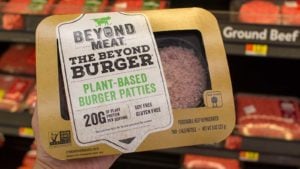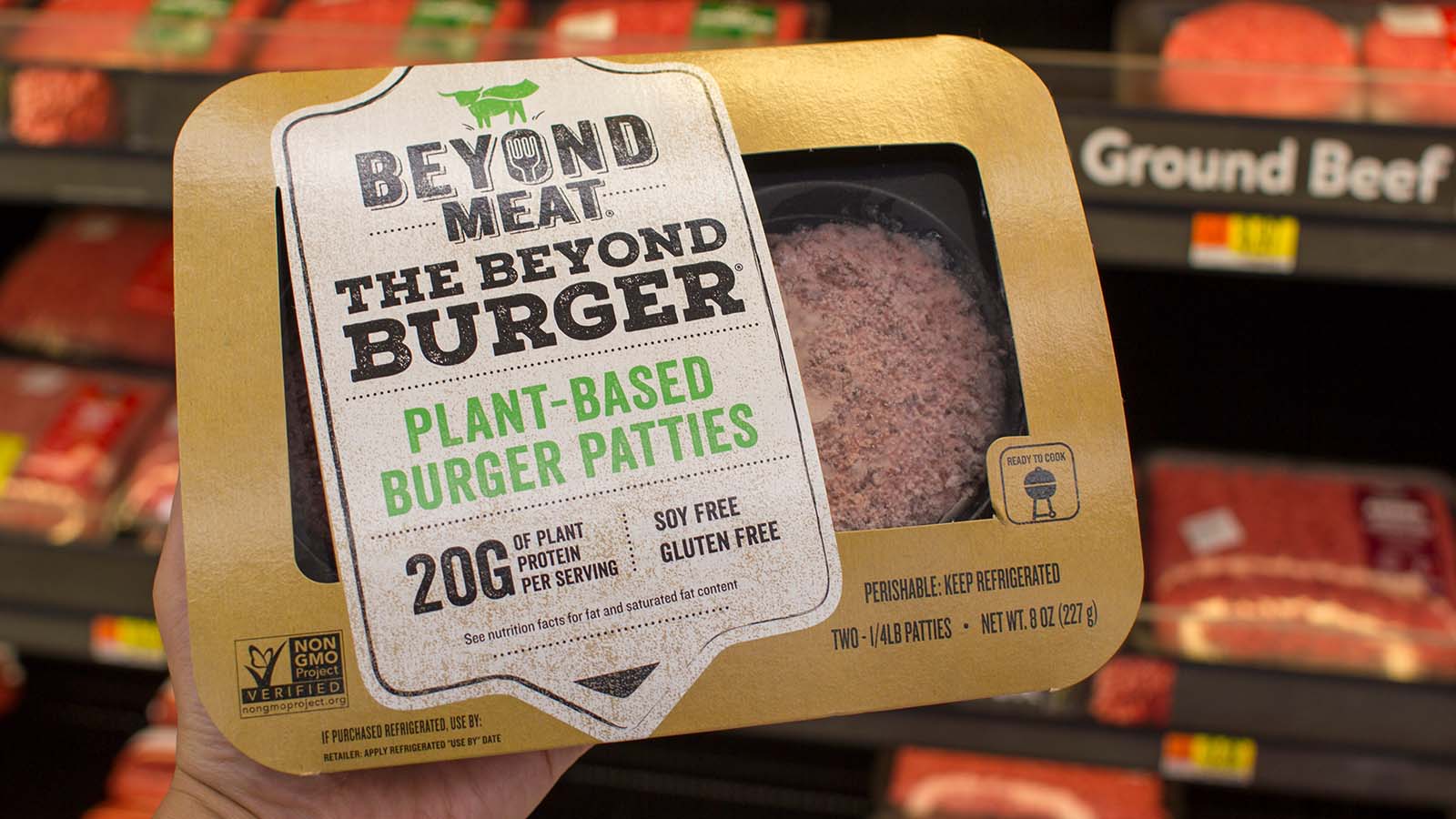Back in September, I wrote about how the biggest problem with Beyond Meat (NASDAQ:BYND) stock is that the market was pricing in too much into the success story. At the time, the stock was trading at around $150. Since then, shares have dropped to around $70, but another surge in January has them back to the $126 level.

There is no question Beyond Meat has exceeded expectations. It is, in fact, a success story. But even success stories must be appropriately valued, and Beyond Meat stock is still priced well beyond perfection.
Beyond Meat Stock Bubble
“Stock market bubble” has a very negative connotation, and rightfully so. However, some of the best companies and markets are the ones that often find themselves in the middle of a bubble.
It’s natural for stock bulls to push back when critics call a stock’s meteoric rise a “bubble” because the insinuation is that the stock is not worth its share price. But just because a stock isn’t worth its current share price doesn’t mean it’s not valuable.
Back on July 30, 2019, former hedge fund manager Whitney Tilson said Beyond Meat stock was an “obvious bubble.” At the time, he predicted the stock price would drop from above $200 to below $100. Within three months, the stock hit his target.
Tilson’s friend and Valens Securities CIO Joel Litman recently took a second look at Beyond Meat stock after its January rally.
“As competitors continue to muscle in on the plant-based burger space, it will be hard for Beyond Meat to charge large premiums for its products… which the company will need to do to justify its current valuations,” Litman said.
The Numbers
Litman isn’t the only one taking a second look at Beyond Meat stock following its recent rally. Piper Sandler analyst Michael Lavery says Beyond Meat is undoubtedly the early leader in a massive emerging market for plant-based meat products. Unfortunately, the numbers on Beyond Meat just don’t add up at this point.
Beyond Meat currently has a market cap of more than $7.7 billion. Lavery projects the global plant-based meat market will grow rapidly over the next several years to reach between $6 billion and $8 billion by 2025. In other words, based on Lavery’s projections, Beyond Meat is currently valued greater than the entire global market for plant-based meat five years from now.
One of the big drivers of Beyond Meat’s January rally was news that partner McDonald’s (NYSE:MCD) is expanding its PLT burger test to more locations. Once again, nobody is questioning the fact that McDonald’s is a major opportunity for Beyond Meat. But the stock added $3.1 billion to its market cap in January. Remember that number.
“Looking ahead, we expect further distribution gains to drive growth and estimate McDonald’s could be a $100M annual opportunity in the US (~$150M globally),” Lavery said.
Let’s say the PLT is a huge hit for McDonald’s. How many years would it take to justify the $3.1 billion in market cap Beyond Meat added?
“We see a long runway of growth in the plant-based meat space, but we believe Beyond’s valuation has already priced in expected upside from McDonald’s distribution,” said Levery.
Piper Sandler has a “neutral” rating and $115 price target for Beyond Meat stock.
The Risks
There are two major problems with stocks like Beyond Meat. The first problem is that, even if you assume the absolute best-case scenario, the stock is fully priced. In other words, assuming a bull-case scenario for the McDonald’s partnership, Piper Sandler estimates Beyond Meat is already trading at more than 10 times 2021 revenue projections. Where is the upside?
The other major red flag is the fact that the best-case scenario very rarely ends up actually happening.
Piper Sandler conducted a survey of 3,500 U.S. adults and asked them if they consume plant-based meats. The problem isn’t the number of respondents that haven’t. The problem is the 62% of respondents who answered, “No, and I am not interested in it.”
In other words, Beyond Meat’s biggest risk may simply be demand.
In the same survey, 60% of respondents said they are more interested in a new chicken sandwich than a meatless burger. At least for now, it seems chicken is the preferred option compared to plant-based burgers.
Either way, Beyond Meat investors are in a difficult situation. Assume the best-case scenario plays out over the next few years. Beyond Meat’s business may eventually grow into its current valuation. But that would mean little upside from its current share price.
If, however, the plant-based meat boom runs into some difficulties along the way, there is some major downside potential.
Wayne Duggan has been a U.S. News & World Report Investing contributor since 2016 and is a staff writer at Benzinga, where he has written more than 7,000 articles. Mr. Duggan is the author of the book “Beating Wall Street With Common Sense,” which focuses on investing psychology and practical strategies to outperform the stock market. As of this writing, Wayne Duggan does not hold a position in any of the aforementioned securities.
